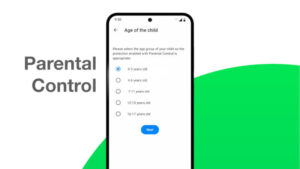Gaël Duval
The founder of the privacy respecting version of Android, /e/, says the time is right for phone makers to adopt an operating system that isn’t dependent on a single company.

On May 20 we learned that Huawei won’t be able to ship Android any more on their smartphones, with likely severe consequences for their mobile device business.
Why? Geopolitics
Huawei has probably played a questionable game with user data and corporate data. This has led governments to discourage the usage of Huawei devices, which is a fair and understandable attitude.
However, what Huawei really didn’t understand is that their dependency on Google/Android technology and services would put them into this terrible situation. Discussions have moved out beyond regular commercial and trade arguments, and are now clearly out of control.
They should have learned from the past: the USA has a significant track record when it comes to embargoes and export restrictions. They don’t even hesitate to force their allies to apply the same restrictions, by threatening them more or less directly, commercially, and financially.
For Huawei, what we witness today is the result of 10 years of strategic blindness. They should have realized that when they sell a smartphone, most of the value is in the software, not in the hardware. Therefore, they shouldn’t have become so reliant on Google/Android for the software: this hard dependency is a major risk for any mobile business.
Smartphone Makers Should (Really) Unite Around a Common, Independent Project
In the 90s, big tech firms like Intel, IBM, and others came to understand that they ought not rely solely on Microsoft/Sun/Oracle as business software partners. They could see that putting all their eggs in one basket was huge risk for their continued businesses in the long run.
So what did they do? They started to support Linux, the geek OS of the 90s! They invested in Linux companies, they joined the Linux Foundation. And now Linux is everywhere, and Intel, IBM, and others still have strong and diversified businesses.
Android should be like Linux. It should be an infrastructure software project upon which other businesses can build more value and yet stay independent from monopolistic proprietary software vendors.
The Time Is Right and the Opportunity Is Huge
Growing concerns about data privacy and other emerging technologies make now the right time to disrupt the mobile market and begin a new era in this field.
The /e/ OS is proof that a credible alternative is possible. It can replace the Google flavor of Android. It’s Google-free at every level, yet still compatible with all Android applications, and provides by default a more virtuous environment in terms of default online services: search, mail, drive… All these ship by default with the /e/OS and provide a great option for people and organizations who aspire to something better and more ethical to use in our new digital world.
Ultimately, we will also have to break free from Google services and the Android application environment. And that’s where a new, emerging technology will help: progressive web applications (PWA) are a new way to design and release mobile applications. PWAs are multi-platform (and thus cheaper and faster to implement and maintain for app publishers). They can be used instantly, without the need to pre-install them, but still retain the same benefits of native mobile apps when it comes to things like local storage and off-line functionality.
With PWAs, there will be no longer any need for the Google Play store: publishers will be able to serve their apps directly to the consumer, or through repositories which aren’t closed worlds. /e/ will start to add support for progressive web apps through their repository of applications.
Ultimately we will probably be able to build an ecosystem where all apps are no longer reliant on the Android framework. After this period of transition where native Android apps and PWAs will co-exist, any free-software mobile operating system, such as KaiOS, PureOS and others, will gain the full benefit of this new app ecosystem.
We stand right now at the crossroads in many things: geopolitical change, privacy concerns, new technologies… Would you, smartphone makers, collaborate to build a better and more ethical mobile ecosystem, along with open-source communities, whilst regaining improved value from this market?
The opportunity is huge; it’s not too late, but the time to act is now.
Editor’s note: A slightly different version of this article was originally published on Gaël Duval’s blog.
Gaël Duval currently heads the /e/ project, which produces a privacy respecting and “Google-free” Android-based phone operating system, as well as the founder of Cleus, that assists corporations and startups with new projects, research and development, as well as business development. He was also the original developer of the now defunct Mandrake Linux distribution, and a co-founder of Mandrakesoft.







Hey Gaël Duval, I do love your work…. however there doesn’t actually appear to be any valid reason for the Huawei issues, it seems to be 100% FUD by the US authorities and they are using that FUD for the trade war with China.
The closest Huawei have gotten, as best I have been able to find out thus far, is that they had a local telnet service open (not accessible to the outside world) and such service was removed when the “issue” was highlighted to them — that was not recently either. If there are any REAL issues with Huawei, then the evidence doesn’t seem to be available for us to see.
It’s a shame really, what’s more, we can’t trust Intel, Microsoft or loads of other US companies due to the way that NSL (national security letters) and other “security” measures work.
The IT industry is screwed when it comes to real trust and most people have no idea how bad it really is, but…. what can you do? It’s almost impossible to build useful hardware without specialized equipment and skills and there is not enough competition b/w Intel and others to avoid getting binary blob issues with your hardware (and all those parts we can’t see properly from the OS level — read IMT here). It’s a super mess.
What makes Intel any better than Huawei? We know for sure what Intel is doing, but the evidence is not there for Huawei for us to see, at least.
btw thanks for giving a possible life for my old Nexus 6P with /e/ going forward; it’s a pity that Google has abandoned the device due to it’s age. The ONLY problem with my Nexus 6P is that it needs a new battery, that is, aside from the lack of OS support from Google… so /e/ will get a go here instead if I ever get around to replacing the battery.
I agree 100%!! It’s time for Google to finally realize they’re not the Holy Grail of OS’es. I for one am waiting for the LibremPhone…and would LOVE to roo my phone and install /e/ on it!…so to all the devs out there: HURRY UP!….were all waiting on you!!
How would I install apps that I use right now ? by side loading them ? way too geeky for most users.
the fact that I need to create an /e/ account is by itself a let down – how secure is it ? who guarantees me that the /e/ developers don’t sell my info ? not to mention that if the whole business side of it crumbles, I lose my services.
It’s just doesn’t seem like an actual, usable option.
Big Tech isn’t interested in any form of altruism. What they are interested in is control and solidifying the govBusiness that runs our lives. Huawei will (attempt to) do in China what Google, Facebook, Microsoft, Apple, etal do in the US: collect data, share this data, manipulate users in various ways.
This isn’t an attack on Huawei: it’s merely a description of the company. It’s a description of the times we live in.
Love the work so many Open Source companies and individuals are engaged in. We can’t rely on Big Tech. We have to do this ourselves. Any energy spent on trying to persuade psychopathic companies to do the “right thing” is wasted energy and keeps us all one step further from our goals.
Huawei should adopt LiniougeOS + F-Droid.
“Smartphone Makers Should (Really) Unite Around a Common, Independent Project”
Nope.
“They should have realized that when they sell a smartphone, most of the value is in the software, not in the hardware.”
What is needed is a secure, FLOSS OS for smartphones.
> “What is needed is a secure, FLOSS OS for smartphones.”
But a truly FLOSS OS is impossible without open hardware. Find a truly libre (non-binary blob) compatible cellular device and you may have something.
This seems familiar to me…Oh yeah:
“Wyld Stallyns will never be a super-band until we get Eddie Van Halen on guitar.”
@Eddie G: “I agree 100%!! It’s time for Google to finally realize they’re not the Holy Grail of OS’es. I for one am waiting for the LibremPhone…and would LOVE to roo my phone and install /e/ on it!”
It’s time for Google to finally realize they’re not the Holy Grail of OS’s, and…that’s why you want to buy a GNU/Linux phone and put Android on it?
@Thad: “It’s time for Google to finally realize they’re not the Holy Grail of OS’s, and…that’s why you want to buy a GNU/Linux phone and put Android on it?”
/e/ is unGoogled Android, that’s the point. Core Android is open source running a Linux kernel.
@Shawn: I think that is exactly the point of /e/OS. However the OS itself is really a vision of the past. All default online services should be considered part of it.
And if you want to go mainstream, you have to be compatible with existing apps, and as explained in the article have a plan for the future: progressive web apps.
@Mike: probably that having a fully ungoogled, and 100% open source OS is a good start to bring more privacy to users. Agreed that having /e/ on a 100% FLOSS hardware would be nice.
@Ronar: “the fact that I need to create an /e/ account is by itself a let down”
This is absolutely untrue.
An open source OS is not enough. The Huawei import restriction allegations are not on the software – but are on the FIRMWARE AND HARDWARE. A number of Chinese companies are accused of embedding chips within the PCB layers. If such a thing is true, then ANY phone maker can do the same. We need generic open hardware to marry up with generic open software. The problem with hardware is to make it affordable for the consumer market, you need to have economy of scale production. Maybe a middle answer for the technically capable is an RPi project with mobile cellular access acting as a MIFI unit and you then engage a VOIP provider for voice and SMS and use a VOIP app on any device you want with Linux. This however is not consumer friendly and the mass consumer market simply does not want to expend mental effort to think about the tools they use. /e/ is a start, but open and trusted hardware is what’s missing.
@Joe Almeida
The situation is even worse than your post would imply.
You mention Huawei and unspecified Chinese companies but, national paranoia aside, no one actually has to hide any chips…they can compromise the design right in the primary chips themselves, and it’s pretty much all chip makers world-wide: Intel, Nvidia, AMD, Broadcom, Qualcomm, etc. The list goes on and on. FOSS Cellular is basically impossible at this point. Even wifi is extremely difficult (And actually getting markedly worse over time!)
On top of being a consumer unfriendly and limited solution, a Raspberry Pi is not even a free solution. The bootloader and kernel contain proprietary blobs and a project to create open firmware for the Pi is pretty much dead. On top of that, the wifi chip in a Pi 3 requires proprietary firmware. In fact, good luck finding a wifi adapter without it that supports any recent wifi standard. Atheros used to be pretty decent until its absorbtion by Qualcomm in 2011.
@LittleThing: “/e/ is unGoogled Android, that’s the point. Core Android is open source running a Linux kernel.”
Yes, but at the risk of pedantry, *that’s the OS.* If you believe that the problem isn’t Android itself, it’s the proprietary apps and services that Google bundles with it, then that’s a completely valid perspective — but it seems a little silly to mock Android as an inferior OS and then, later in the same sentence, talk about how excited you are to put Android on a phone that comes with another (GNU-based) OS.
It’s worth keeping in mind that being open source isn’t enough to ensure user’s rights are respected.
Firefox is a great example of that. The W3C is on a corporate psychosis fueled mission to strip our privacy away in the name of big business and Mozilla’s capitulation to allow DRM rather than lose market share to the privacy vacuum that is Chrome is proof enough of that. Remember Chrome too is build on an open source foundation, just the way Android is.
The web itself is too complex and compromised for safe usage (not by accident, but by design!). A new paradigm is needed, but as long as users care more about whether or not Netflix works than whether or not the are being profiled and surveilled, nothing will change.
The same goes for mobile.
— Regarding /e/
I respect that it is open source, but these articles are starting to sound like commercials. At the risk of making it more so: I’m curious how /e/ deals with Android applications that want to access proprietary Google API’s.
@Mike: Not only that, but /e/ isn’t entirely open-source; it bundles Magic Earth for maps, and with all respect to Gaël, “we’re sure they’re not doing anything bad with your location data” isn’t the most reassuring assurance.
Regarding apps that require GMS to function: /e/ uses microG ( https://microg.org/ ), an open library that’s supposed to replace GMS. I haven’t used it myself so I’m not sure how well it works (I’ve gotten by so far with LineageOS without GMS or microG; I’m right this very moment having some trouble getting Dropbox to run and suspect the lack of GMS is the problem, but it’s the first app I’ve had an issue with).